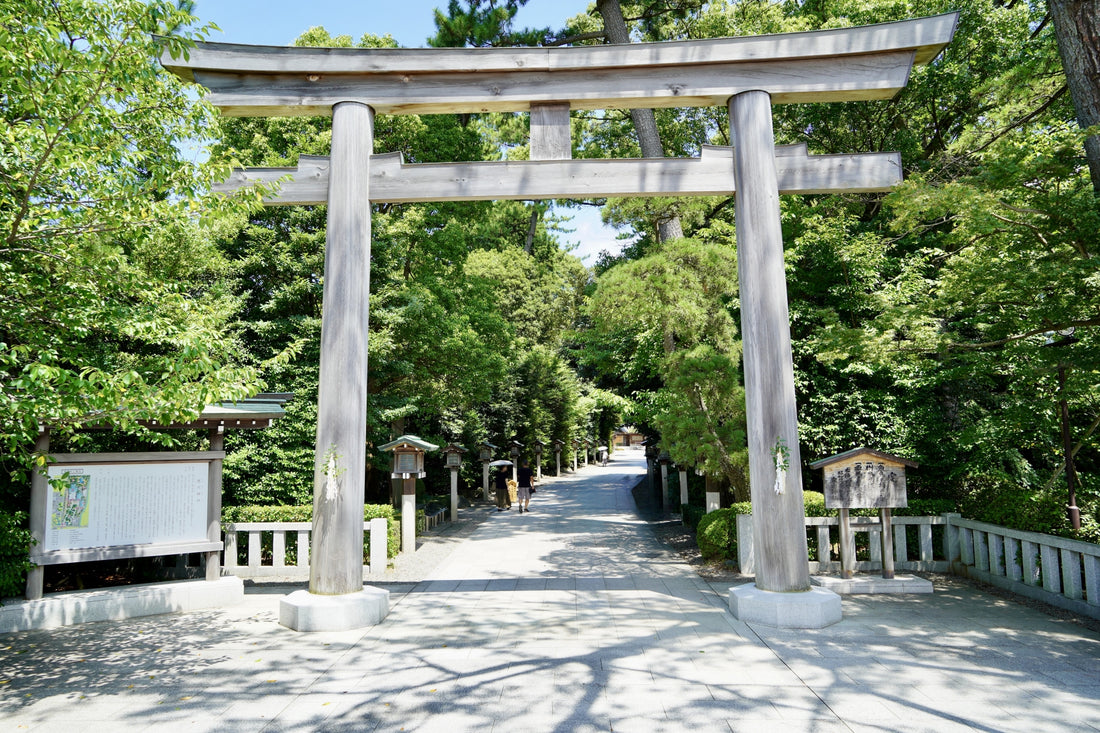Japan, an island nation surrounded by the sea, is blessed with abundant nature. A key feature of Japanese culture is the belief in harmonizing with nature rather than opposing it. On the other hand, Western culture often views death and other natural processes as part of a cycle of regeneration. In this article, we’ll explore the unique features of Japanese culture, its close relationship with nature, and the differences from Western culture. Let’s dive into some timeless knowledge of Japanese traditions that may have been forgotten in the fast-paced modern world.
A Culture Evolving in Harmony with Nature
The Origins of Japanese Culture
The roots of Japanese culture stretch back to the Jomon period, during which the ancestors of the Japanese lived in harmony with nature. They believed that nature was far more powerful than humans, a philosophy echoed in Buddhism's concept of "emptiness" or "void." Death was seen as part of nature's cycle, with humans as simple participants in the natural order. In contrast, Western cultures, particularly those influenced by ancient Egypt and Europe, sought to preserve the human body and soul after death, as seen in practices like mummification and the construction of elaborate tombs.
The Emergence of Japanese Cultural Identity
Japanese culture as we know it today began to take shape during the Edo period (1603-1868), evolving further as Japan opened up to the world in the Meiji period. One of the key figures in this transformation was Fukuzawa Yukichi, who, after visiting the West, realized the importance of establishing a distinctive Japanese culture that could stand alongside Western advances. Upon returning to Japan, he founded Keio University and authored numerous works that helped preserve traditional arts like tea ceremony, Japanese dance, flower arrangement, and Noh theater—arts that remain integral to Japanese culture today.
Japanese vs. Western Cultural Characteristics
Contrasting Features of Japanese and Western Cultures
There are fundamental differences between Japanese and Western cultures. Japanese culture, heavily influenced by figures like Fukuzawa Yukichi, has preserved its traditional arts, while Western culture took a different route. Let’s examine some key differences:
Japan's Unique Development Despite Foreign Influences
Japan has absorbed various influences from neighboring countries like China and Korea since ancient times, yet it has always maintained its own distinct cultural identity. This is largely due to the geographical diversity of the Japanese islands, with different ethnic groups coexisting in coastal, mountainous, and flatland areas. Although Japan has been open to adopting foreign cultures, it has selectively incorporated elements, adapting them in a way that suits its people and landscape.
Mainland vs. Island Culture: Key Differences
There are significant distinctions between Western, mainland cultures and Japan’s island culture. These differences can be seen in religion, architecture, social customs, and thought patterns:
-
Religion: Japan’s primary religion, Buddhism, arrived via China and Korea, but it evolved with a unique Japanese interpretation, emphasizing a spiritual connection with nature. In contrast, Western religions like Christianity focus on faith in divine teachings, particularly the resurrection of the soul.
-
Architecture: Japanese architecture predominantly uses lightweight materials like wood, which allow for flexibility and durability in a country prone to earthquakes. Western architecture, on the other hand, often relies on heavier materials like stone and metal, favoring permanence and strength over adaptability.
-
Social Customs: As an island nation, Japan has historically been somewhat isolated, resulting in a more reserved communication style. In contrast, Western societies often emphasize more direct social interactions, such as handshakes and hugs.
-
Dietary Habits: Japan’s diet is deeply influenced by its natural surroundings, with seafood and rice forming the foundation of Japanese cuisine. In Western countries, diets have traditionally been based on wheat and livestock, leading to a heavier emphasis on bread and meat.
-
Thought Patterns: The Japanese are known for valuing harmony and cooperation, often prioritizing group consensus. Western cultures, on the other hand, are more individualistic, driven by curiosity and innovation, and are more inclined to assert their views.
-
Approach to Nature: In Japan, where natural disasters like earthquakes and tsunamis are frequent, the prevailing attitude is one of coexistence with nature. In contrast, Western cultures have historically sought to control and conquer natural forces.
Conclusion
Japanese behavior and traditions today are heavily influenced by centuries of cultural development, especially in a nation that has historically had limited contact with other countries. Despite these limitations, Japan has developed a unique and enduring culture that has withstood the test of time. Without the efforts of historical figures like Fukuzawa Yukichi, who saw the importance of preserving Japan’s traditional arts and crafts, much of Japan’s rich cultural heritage might have been lost. Today, Japanese culture continues to be celebrated and shared, not only within Japan but with the rest of the world. It's important for us to keep this legacy alive and share the beauty of Japan's old traditions with global audiences.

